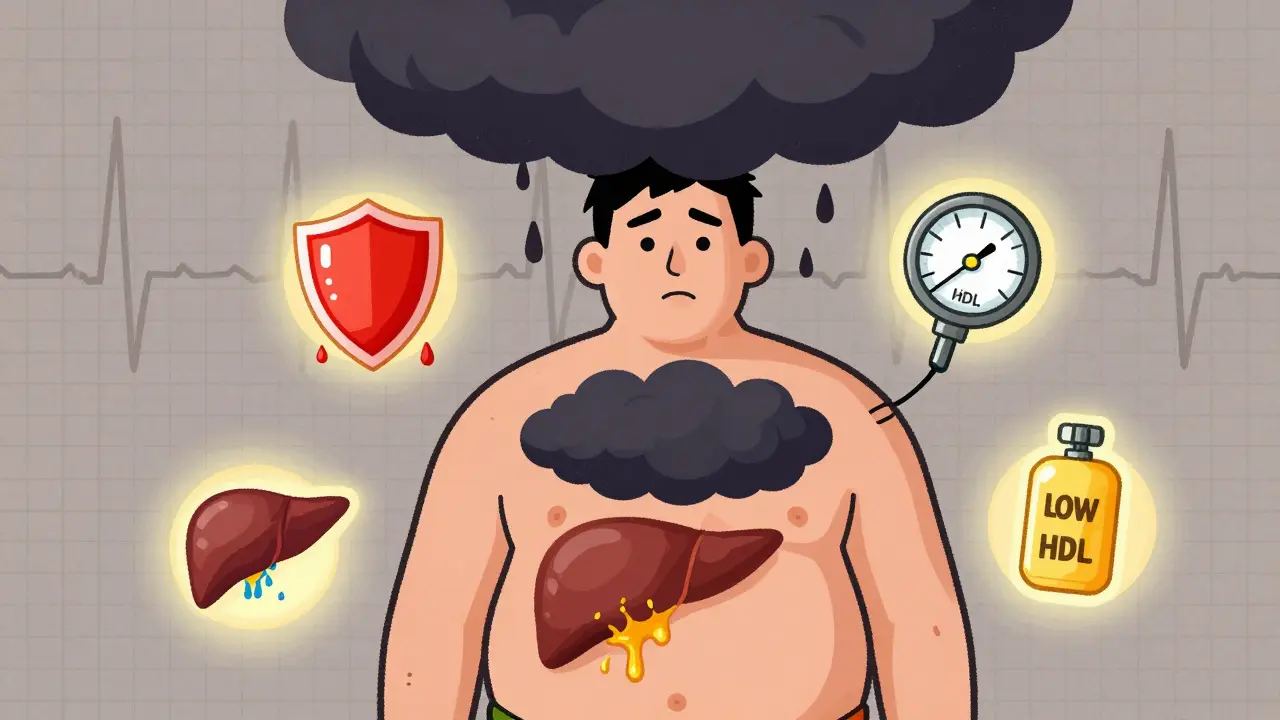When dealing with high blood pressure, a chronic condition where the force of blood against artery walls stays elevated, raising the chance of heart attack, stroke, and kidney damage. Also known as hypertension, it affects millions worldwide and often sneaks by without obvious symptoms. Understanding what drives this pressure and how to tame it is the first step toward a healthier life.
One of the most direct ways to bring numbers down is through antihypertensive medication, drugs designed to relax blood vessels, reduce fluid volume, or block stress hormones that tighten arteries. Common classes include ACE inhibitors, beta‑blockers, calcium‑channel blockers, and diuretics. These medicines work together with lifestyle tweaks, forming a two‑pronged attack that often yields faster results than diet or exercise alone.
Speaking of lifestyle, lifestyle changes, daily habits like a low‑salt diet, regular aerobic activity, weight management, and limiting alcohol are powerful tools. Cutting back on processed foods, adding more potassium‑rich fruits and vegetables, and walking briskly for 30 minutes most days can shave several points off your reading without a prescription.
Even the best medicines and habits need accurate feedback, which is where blood pressure monitoring, home or clinic‑based devices that give you real‑time systolic and diastolic readings comes in. Keeping a log helps you spot trends, gauge the impact of a new diet, and alert your doctor when adjustments are needed. A validated cuff and consistent measurement technique make this simple yet essential step a cornerstone of control.
Risk factors extend beyond salt and stress. Genetics, age, chronic kidney disease, and sleep apnea all tip the scale toward higher readings. For example, people with a family history of hypertension may need earlier screening, while those over 60 often see pressure rise naturally due to arterial stiffening. Recognizing these contributors lets you tailor prevention—whether it’s a sleep study for apnea or a targeted exercise plan for older adults.
High blood pressure doesn’t exist in isolation; it intertwines with heart disease, diabetes, and metabolic syndrome. Elevated pressure can damage the lining of arteries, fostering plaque buildup that leads to coronary artery disease. Conversely, uncontrolled diabetes accelerates vascular damage, making blood pressure harder to manage. Treating one condition often improves the other, highlighting the need for a holistic health approach.
Below you’ll find a curated collection of articles that dive deeper into each of these areas. From buying affordable generic medications safely online to practical tips for diet, exercise, and monitoring, the posts are chosen to give you actionable insight and trustworthy guidance. Ready to explore the specifics? Let’s get into the resources that can help you take charge of your health today.
Posted by
Paul Fletcher
14 Comments

Metabolic syndrome is a cluster of five risk factors-including belly fat, high blood pressure, and insulin resistance-that dramatically increase heart disease and diabetes risk. Learn how to spot it, reverse it, and protect your health.
read morePosted by
Jenny Garner
19 Comments

Explore how high blood pressure and tinnitus are linked, learn shared risk factors, and get practical steps to manage both conditions effectively.
read more